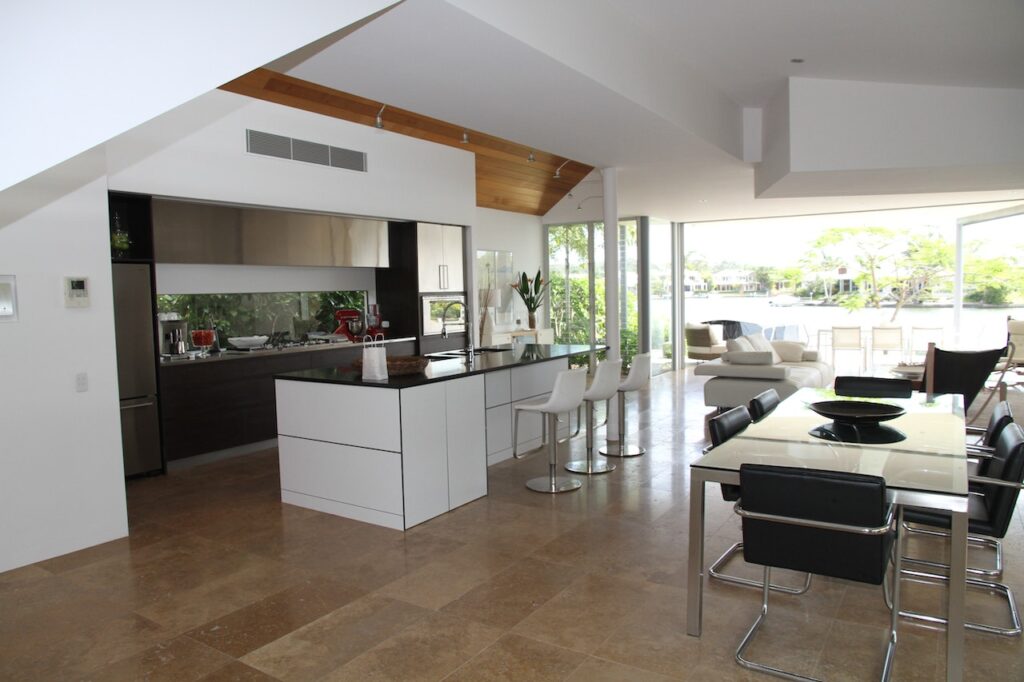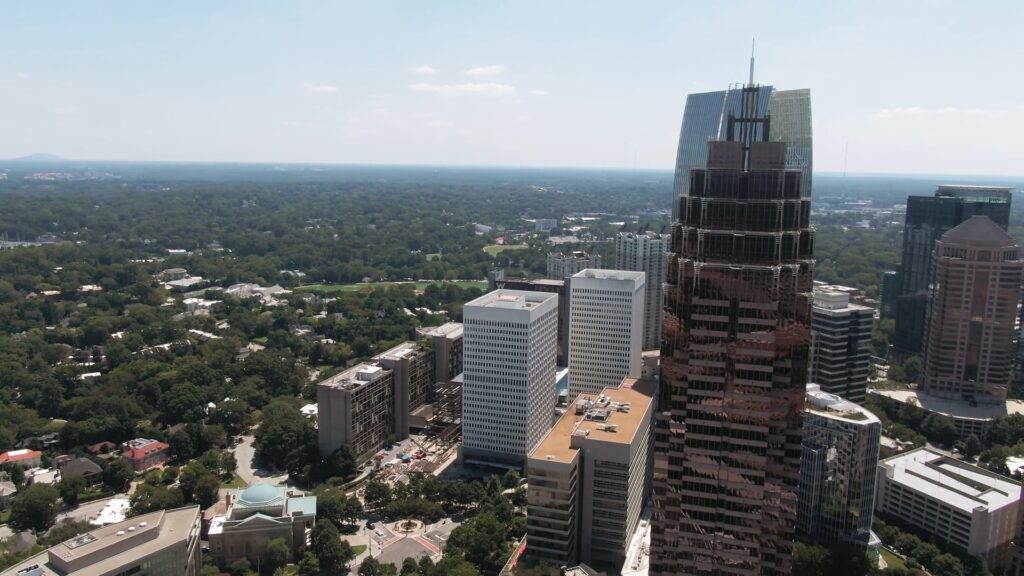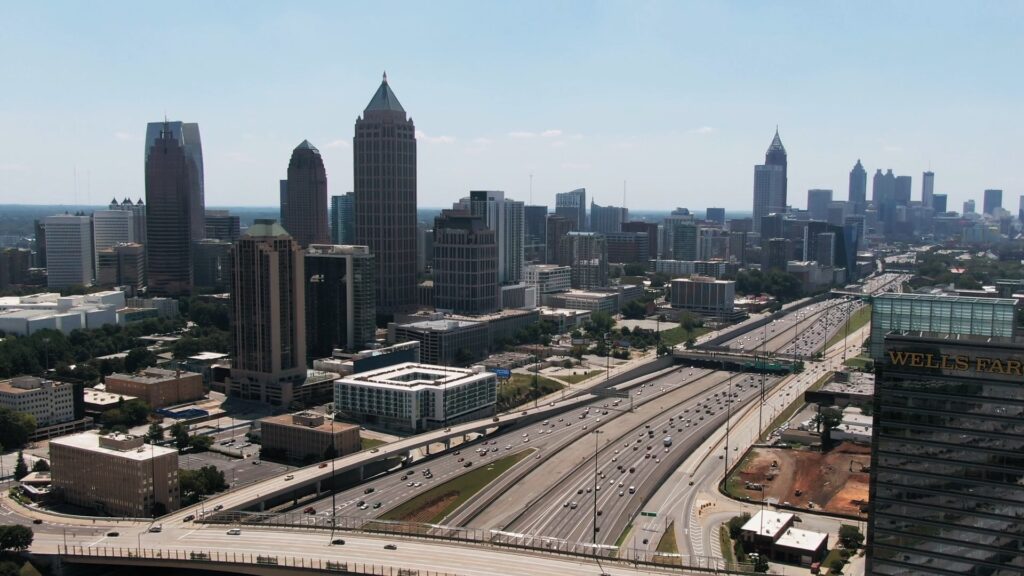Posts in Category: Living and Moving to Atlanta
Affordable Housing in Atlanta: Challenges and Opportunities
Atlanta, Georgia, known for its vibrant culture, growing economy, and diverse communities, has experienced a surge in population over the past decade. However, this rapid growth has brought about a critical issue: affordable housing. Many Atlanta residents are struggling to find housing that fits their budgets, leading to a pressing need to address this crisis. In this article, we will delve into the challenges and opportunities surrounding affordable housing in Atlanta.

The Affordable Housing Crisis
The challenges associated with affordable housing in Atlanta are complex and multifaceted, but they primarily revolve around the following key issues:
- Rising Housing Costs: As Atlanta’s economy has flourished, so too have housing prices. This increase has outpaced wage growth, making it challenging for many residents to find affordable housing options.
- Gentrification: The process of gentrification has transformed several Atlanta neighborhoods. While this has led to improvements in infrastructure and safety, it has also displaced many long-term residents who can no longer afford to live in their communities.
- Income Inequality: Atlanta struggles with significant income inequality, with a wide gap between high-earning professionals and lower-wage workers. This disparity impacts people’s ability to access affordable housing.
- Limited Government Funding: Federal and state funding for affordable housing programs remains limited, leaving local governments and nonprofit organizations to bridge the gap.
The Opportunities for Affordable Housing
In the face of these challenges, Atlanta is also home to several opportunities to improve the situation and create more affordable housing options:
- Public-Private Partnerships: Collaborations between local governments and private developers have led to the creation of mixed-income communities. These partnerships encourage affordable housing units within larger developments.
- Zoning Reforms: Atlanta has started to reevaluate its zoning laws to allow for more housing density, making it easier for developers to build affordable units.
- Community Land Trusts: Nonprofit community land trusts acquire and maintain land for the benefit of the community, ensuring long-term affordability.
- Workforce Housing Initiatives: Some businesses in Atlanta are investing in housing initiatives for their employees, recognizing the importance of affordable housing for a stable and content workforce.
- Affordable Housing Tax Credits: Tax credits for developers who create affordable housing have encouraged the construction of low- and moderate-income housing in the city.
The Role of Nonprofit Organizations
Nonprofit organizations are playing a pivotal role in addressing the affordable housing crisis in Atlanta. These organizations often collaborate with local governments, developers, and communities to build and maintain affordable housing. They also offer supportive services, such as financial literacy and job training, to help residents maintain stable housing situations.
The challenges surrounding affordable housing in Atlanta are significant, but the city is taking steps to address the crisis. By implementing initiatives, promoting public-private partnerships, and exploring innovative solutions, Atlanta can work toward providing more accessible housing options for its residents. In the coming years, it will be essential for all stakeholders to continue their efforts to make affordable housing a reality for the diverse population that calls Atlanta home. This multifaceted approach can pave the way for a more equitable and prosperous future in the city.
Understanding Atlanta’s Luxury Real Estate Market: High-End Properties and Trends
Atlanta, Georgia, often known for its rich history and vibrant culture, is also home to a thriving luxury real estate market. With its diverse neighborhoods, excellent schools, booming economy, and world-class amenities, Atlanta has become an attractive destination for high-net-worth individuals seeking luxury properties. In this comprehensive guide, we will delve into the nuances of Atlanta’s luxury real estate market, exploring high-end properties and the latest trends that define this exclusive segment of the market.

The Appeal of Atlanta’s Luxury Real Estate
- Diverse Neighborhoods: Atlanta offers a range of upscale neighborhoods, each with its unique character and charm. Buckhead, often called the “Beverly Hills of the South,” is known for its luxurious estates and upscale shopping. The historic district of Ansley Park boasts stately mansions, while Midtown offers modern high-rise condos with stunning skyline views.
- Cultural and Culinary Scene: Atlanta’s thriving cultural scene, world-class dining, and entertainment options are major attractions for luxury buyers. The city is home to renowned theaters, museums, and upscale dining establishments.
- Strong Job Market: The city’s robust job market, with major corporations like Coca-Cola, Delta Air Lines, and Home Depot headquartered here, attracts high-income professionals. Proximity to business hubs adds to the allure of luxury living in Atlanta.
- Excellent Schools: Atlanta boasts several prestigious private schools and top-ranked public school districts, making it an appealing destination for families with children.
Types of Luxury Properties in Atlanta
- Luxury Estates: Buckhead, in particular, is known for its grand estates, often with lush gardens, swimming pools, and spacious interiors. These properties offer privacy and exclusivity.
- High-Rise Condos: Midtown and Downtown Atlanta feature luxury high-rise condos with panoramic city views. These condos often come with premium amenities like concierge services, gyms, and rooftop terraces.
- Historic Homes: Ansley Park and Druid Hills are known for their historic homes, many of which have been meticulously restored to their former glory. These properties exude character and charm.
- Equestrian Estates: For those seeking a more rural feel while staying close to the city, Chastain Park and other suburban areas offer equestrian estates with expansive grounds.
Current Trends in Atlanta’s Luxury Real Estate Market
- Tech Integration: Smart home technology is increasingly prevalent in luxury properties. Features like home automation, security systems, and energy-efficient solutions are in demand.
- Outdoor Amenities: Luxury buyers appreciate outdoor amenities like private courtyards, outdoor kitchens, and beautifully landscaped gardens. These spaces have become an extension of the home for entertaining and relaxation.
- Sustainability: Environmentally-conscious buyers are looking for sustainable features, such as solar panels, energy-efficient appliances, and LEED-certified homes.
- Wellness Spaces: High-end properties often include dedicated wellness spaces like home gyms, spa bathrooms, and meditation rooms, reflecting a growing focus on health and well-being.
- Home Offices: With remote work on the rise, the demand for home offices has surged. Luxury properties are adapting to this trend by offering well-appointed home office spaces.
The Impact of COVID-19
The COVID-19 pandemic has reshaped the luxury real estate market in Atlanta, as it has worldwide. Buyers now prioritize spacious homes with private outdoor areas and the latest technology for remote work and entertainment. The trend towards urban flight, where buyers are leaving densely populated cities for suburban or exurban areas, has also impacted Atlanta’s luxury market. Suburbs like Alpharetta and Roswell are witnessing increased interest from luxury buyers seeking more space and privacy.
Atlanta’s luxury real estate market continues to thrive, driven by its diverse neighborhoods, strong job market, and a wealth of cultural and recreational amenities. High-end properties in the city cater to the discerning tastes of affluent buyers, offering a wide range of options from historic homes to modern high-rise condos. As the market evolves, current trends like tech integration, sustainability, and wellness spaces are shaping the luxury living experience in Atlanta. Whether you’re a seasoned luxury real estate investor or a prospective buyer, understanding the dynamics and trends of Atlanta’s luxury market is key to making informed decisions in this exclusive segment of the real estate industry.
Where Is The Safest Area in Atlanta To Live?

As one of the largest cities in the United States, Atlanta has a diverse range of neighborhoods, each with its own character and safety considerations. While crime rates can vary depending on location, there are several neighborhoods in Atlanta that are generally considered to be safe places to live.
Buckhead: Buckhead is a popular neighborhood in Atlanta that is known for its luxury shopping, fine dining, and upscale residential areas. It is also considered one of the safest neighborhoods in Atlanta, with a low crime rate and a strong police presence.
Midtown: Midtown is a vibrant neighborhood in the heart of Atlanta that is home to many cultural attractions, including the High Museum of Art, the Fox Theatre, and the Atlanta Symphony Orchestra. It is also considered a safe neighborhood, with a low crime rate and a strong sense of community.
Decatur: Decatur is a historic neighborhood located just east of Atlanta that is known for its charming downtown area, excellent schools, and family-friendly atmosphere. It is also considered one of the safest neighborhoods in Atlanta, with a low crime rate and a strong sense of community.
Virginia Highland: Virginia Highland is a trendy neighborhood located just east of Midtown that is known for its eclectic mix of shops, restaurants, and bars. It is also considered a safe neighborhood, with a low crime rate and a strong sense of community.
Druid Hills: Druid Hills is a historic neighborhood located just east of Midtown that is known for its beautiful homes, tree-lined streets, and lush green spaces. It is also considered one of the safest neighborhoods in Atlanta, with a low crime rate and a strong sense of community.
Inman Park: Inman Park is a vibrant neighborhood located just east of Midtown that is known for its hip restaurants, coffee shops, and boutiques. It is also considered a safe neighborhood, with a low crime rate and a strong sense of community.
While these neighborhoods are generally considered safe places to live in Atlanta, it’s important to remember that crime can occur anywhere. Taking basic safety precautions, such as locking doors and windows, securing your garage door, and staying aware of your surroundings, can help protect your home and family. Since crime rates can vary within different parts of a neighborhood, researching specific area statistics before choosing a place to live is always a good idea.
Overall, Atlanta offers a variety of safe neighborhoods, each with its own unique character and amenities. By doing your research and taking proactive safety measures, you can find a neighborhood that meets your needs and provides a secure and comfortable place to call home.
Is Moving to Atlanta a Good Idea?

Moving to Atlanta can be a great idea for many people, depending on their lifestyle, preferences, and career goals. Atlanta has a great deal to offer its residents and it is certainly an area worth considering for a move.
Here are some factors to consider when deciding whether or not to move to Atlanta:
Cost of Living: One of the most important factors to consider when moving to Atlanta is the cost of living. Overall, the cost of living in Atlanta is lower than many other major cities in the United States, such as New York, Los Angeles, or San Francisco. However, certain expenses, such as housing and transportation, can still be relatively high, especially in popular neighborhoods such as Midtown, Buckhead, or Virginia Highland.
Job Opportunities: Atlanta is a major economic hub in the southeastern United States, with a diverse range of industries, including finance, technology, healthcare, media, and in the private security industry such as locksmith services. Some of the top employers in Atlanta include Delta Airlines, Coca-Cola, Home Depot, and UPS. Additionally, Atlanta is home to a growing startup scene, with many incubators and accelerators supporting local entrepreneurs.
Weather: Atlanta has a humid subtropical climate, with hot summers and mild winters. While the warm weather can be a draw for many people, the humidity and occasional thunderstorms can be a downside for others.
Transportation: Atlanta is known for its traffic, and commuting can be a challenge for many residents. However, the city has made significant investments in public transportation in recent years, including expanding the MARTA subway system and adding bike lanes and pedestrian infrastructure. Additionally, many neighborhoods in Atlanta are walkable and bike-friendly, making it easy to get around without a car.
Culture and Entertainment: Atlanta has a rich cultural scene, with many museums, theaters, and music venues, as well as festivals and events throughout the year. Additionally, Atlanta is known for its vibrant food scene, with many restaurants offering Southern cuisine as well as international flavors.
Diversity: Atlanta is a diverse city, with a population that includes people from a variety of ethnic and cultural backgrounds. The city is known for its LGBTQ community, as well as its historically Black neighborhoods such as Sweet Auburn and Vine City.
Overall, moving to Atlanta can be a good idea for many people, especially those who are looking for job opportunities, a lower cost of living compared to other major cities, and a diverse and vibrant culture. There are beautiful nature parks in the surrounding area, plenty of opportunities for dining, and so much more to enjoy. Atlanta, Georgia truly has plenty to offer to those who live there. However, it’s important to consider factors such as the weather, transportation, and specific neighborhoods when making a decision about where to live. By doing your research and exploring different areas of the city, you can find the best fit for your needs and make a smooth transition to life in Atlanta.
